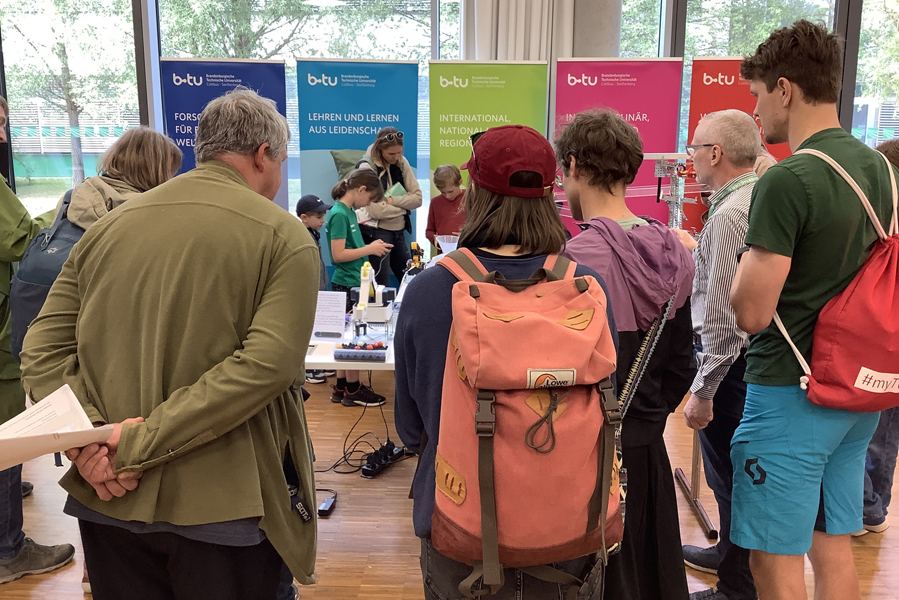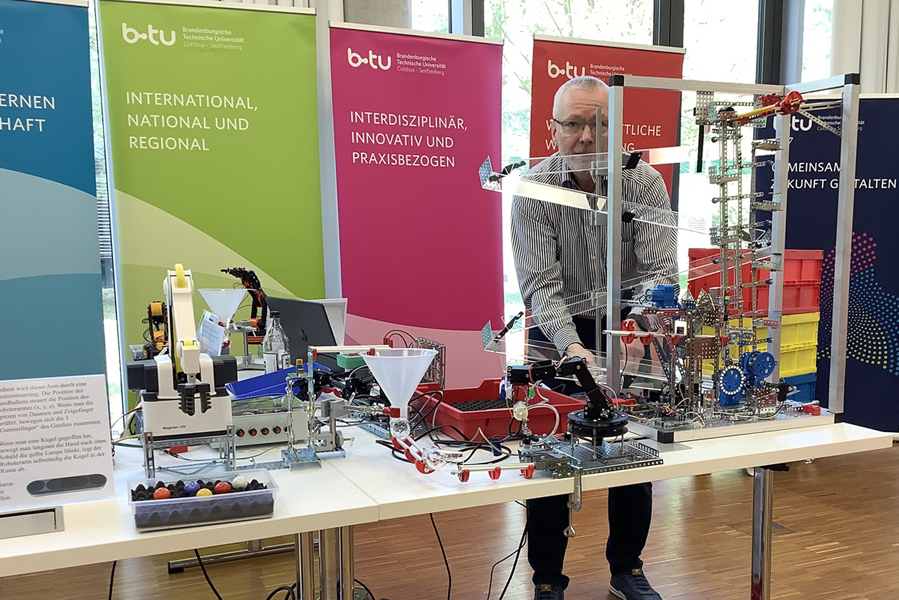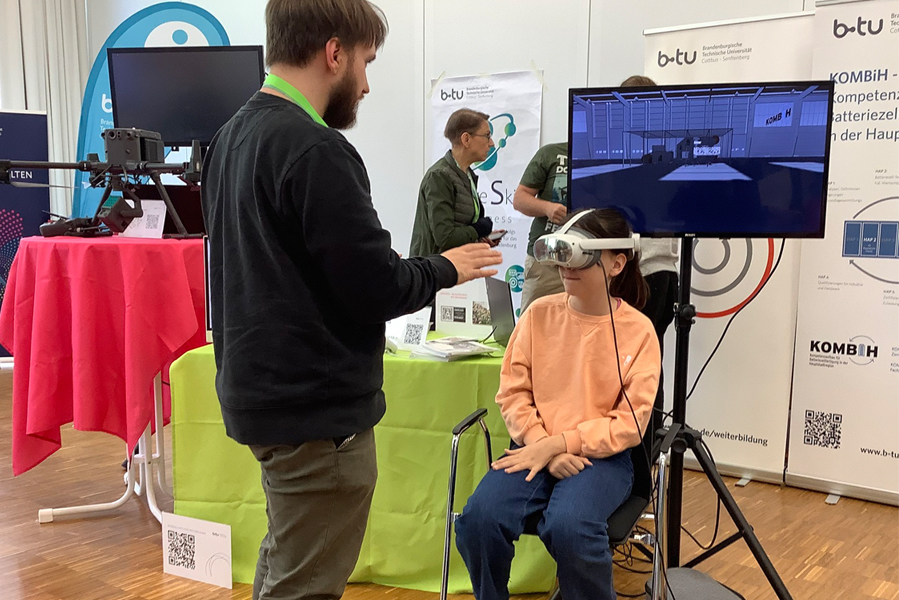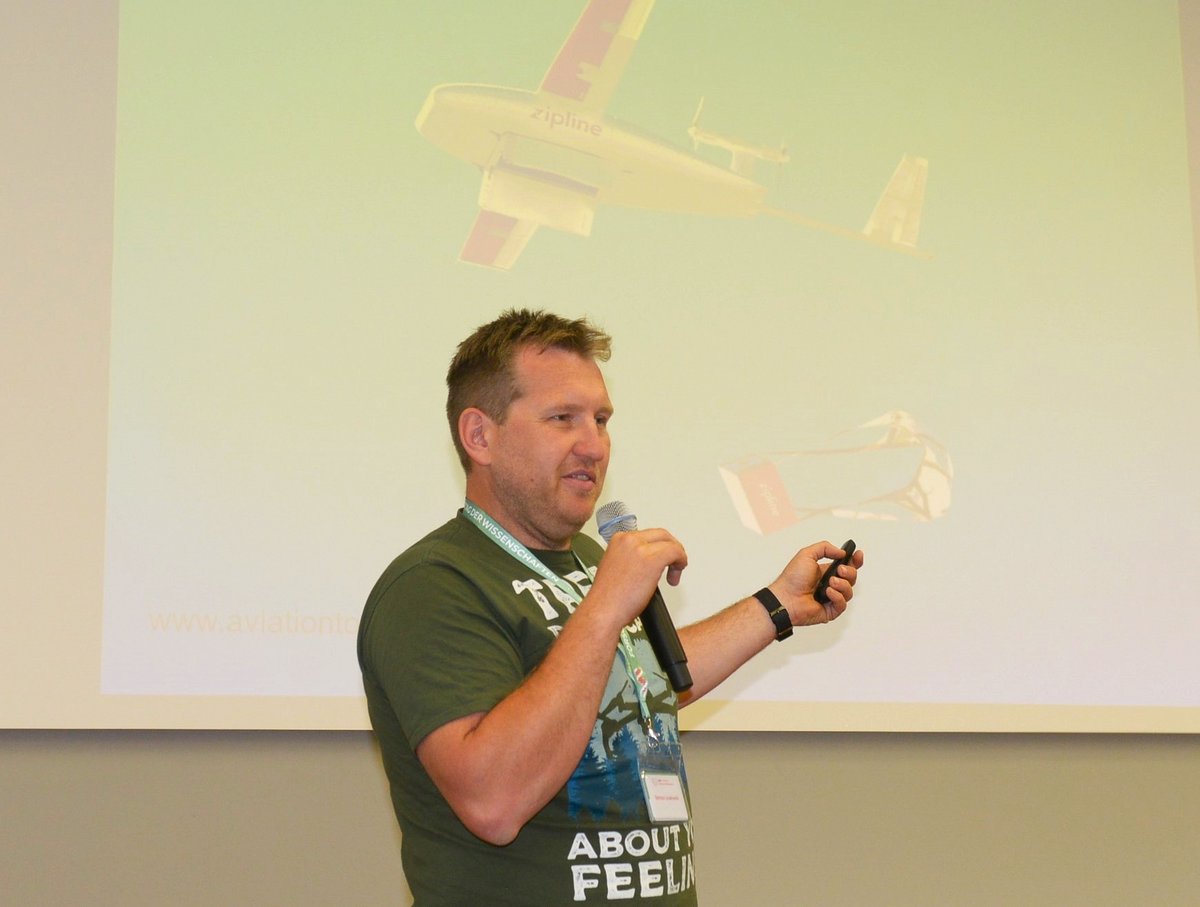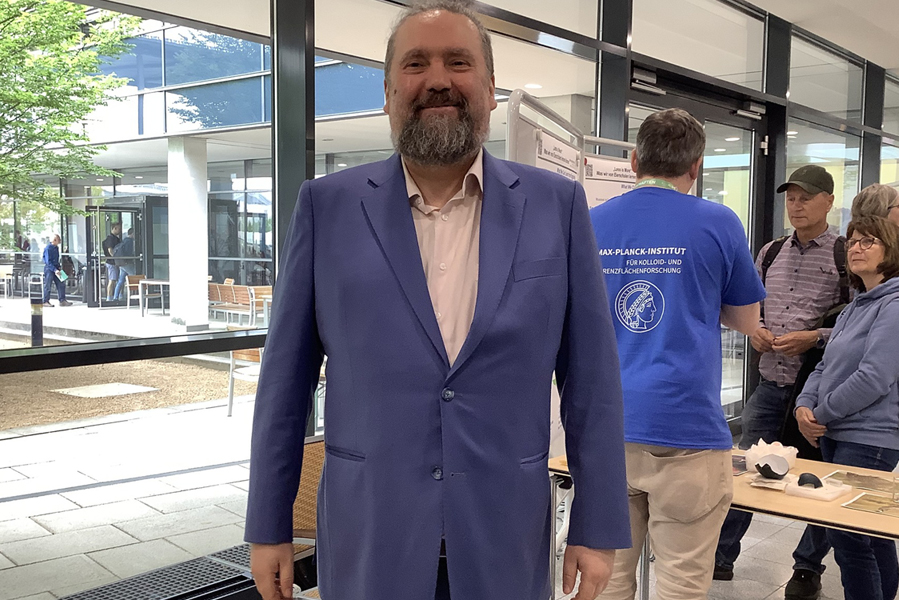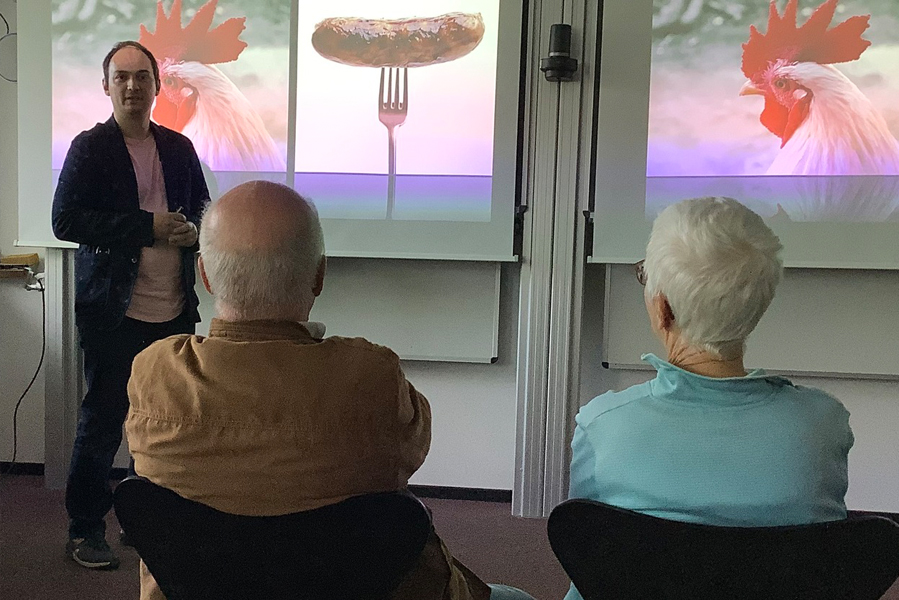BTU as a crowd-puller at Potsdam Science Day
Organised for the twelfth time and once again a sensational success! Also for the BTU Cottbus-Senftenberg, which presented itself to the masses on Potsdam Science Day with six lectures and information and experiment stands from the Centre for Continuing Education and the UNEX student laboratory at BTU College.
Families with young, middle-aged and older children were particularly drawn to the stand of Dr Olaf Gutschker, head of the student laboratory and head of the Physics department at BTU College, who invited them to join in. Gutschker showed how difficult it is to use controllers and gesture control to move small robotic arms to transport colourful balls into a ball track.
Centre for Continuing Education offered the "learning playground of the future"
Henry Herkula explained how virtual learning spaces work at one of the learning islands on the "Learning Playground of the Future". It wasn't just children and young people keen to experiment who put on the goggles. Herkula: "Many send their children first - and then ask if they can have a go." At Bartosz Łysakowski's learning island, everything revolved around "Drones: From toy to key technology". The smallest drone that Lysakowski had brought along fitted in his hand, while the largest protruded beyond the surface of a high table.
Drones transport loads, measure air quality and extinguish high-rise fires
In his presentation, Łysakowski explained that drones were already being used in the First World War and that the rapid development of drone technology, which began in the early 1990s, continues to this day. "Drones are no longer reserved for military use alone." Illustrated with video sequences, the officer showed that drones have arrived in numerous areas of life. They not only serve as a leisure activity, but also fulfil important tasks. "They record the extent of natural disasters, transport loads, measure air quality or extinguish high-rise fires."
The lecture "How do wind turbines & co. get into the computer? Simulations for energy systems of the future" by Dr Marten Klein from the Energy Innovation Centre (eiz), who spoke about the challenges involved in planning wind turbines. The head of the Young Investigator Group (YIG) "Advanced Modelling and Simulation of Transfer Processes for Next Generation Energy Systems" presented current research work on the simulation and stochastic modelling of flows that are directly related to new energy systems.
Prof. Dr Zander explained how AI can learn to better understand our emotions
Prof. Dr Thorsten O. Zander 's presentation, on the other hand, dealt with the question: "How can artificial intelligence (AI) become more human?" Zander showed how passive brain-computer interfaces are revolutionising AI by gaining insights directly from the activity of the brain. The AI expert and holder of the Lichtenberg Professorship for Neuroadaptive Human-Technology Interaction at the Volkswagen Foundation is conducting intensive research into the interface between brain and machine and has been awarded funding of over 30 million euros from the Cyber Agency in 2024 - the highest single grant ever awarded in the EU.
Dr Owen Ernst wowed the audience with a story about supernovae and stardust
While Zander spoke of the "era of AI", Dr Owen Ernst heralded the "age of the quantum computer" in Potsdam. Ernst, who has just won first place in the Berlin-Brandenburg Business Plan Competition with his HoCHQuant team, easily managed to explain his complex research into the production of high-purity silicon 28, a material that is needed for quantum computing, in such a way that the audience was smarter after 20 minutes of talk. And wanted to be even smarter, because there was a long Q&A session at the end.
Johannes Kaufhold showed how music affects the human organism
"Singing is fun, singing is good, yes, singing cheers you up and singing gives you courage." The participants learnt that these song lines are true through the explanations of Johannes Kaufhold, who teaches at the Institute of Instrumental and Vocal Performance and Teaching at BTU, and by singing along, which they were encouraged to do. The officer emphasised that it is not only the emotional effect of music that is enormous. Singing and making music together funds social skills and is even good for a healthy circulation. "Singing helps to improve lung function and posture and has been proven to strengthen the body's defences."
The lecture by Prof. Dr Ruben R. Rosencrantz, who gave an insight into the topic of "Cartilage from the 3D printer: how new materials could repair joint damage", was not followed by singing, but by a lot of questions. The head of the "Biofunctional Polymeric Materials" chair at BTU and head of the "Life Science and Bioprocesses" research area at the Fraunhofer IAP presented the enormous potential of bioprinting, a process that, according to Rosencrantz, will be used to produce entire organs in the long term. At present, however, research is still focussed on customised tissue.
More about the 12th Potsdam Science Day: www.ptdw.de
Contact us
Kommunikation und Marketing
T +49 (0) 3573 85-283
ralf-peter.witzmann(at)b-tu.de
Press contact
Kommunikation und Marketing
T +49 (0) 355 69-3837
britta.radkowsky(at)b-tu.de

